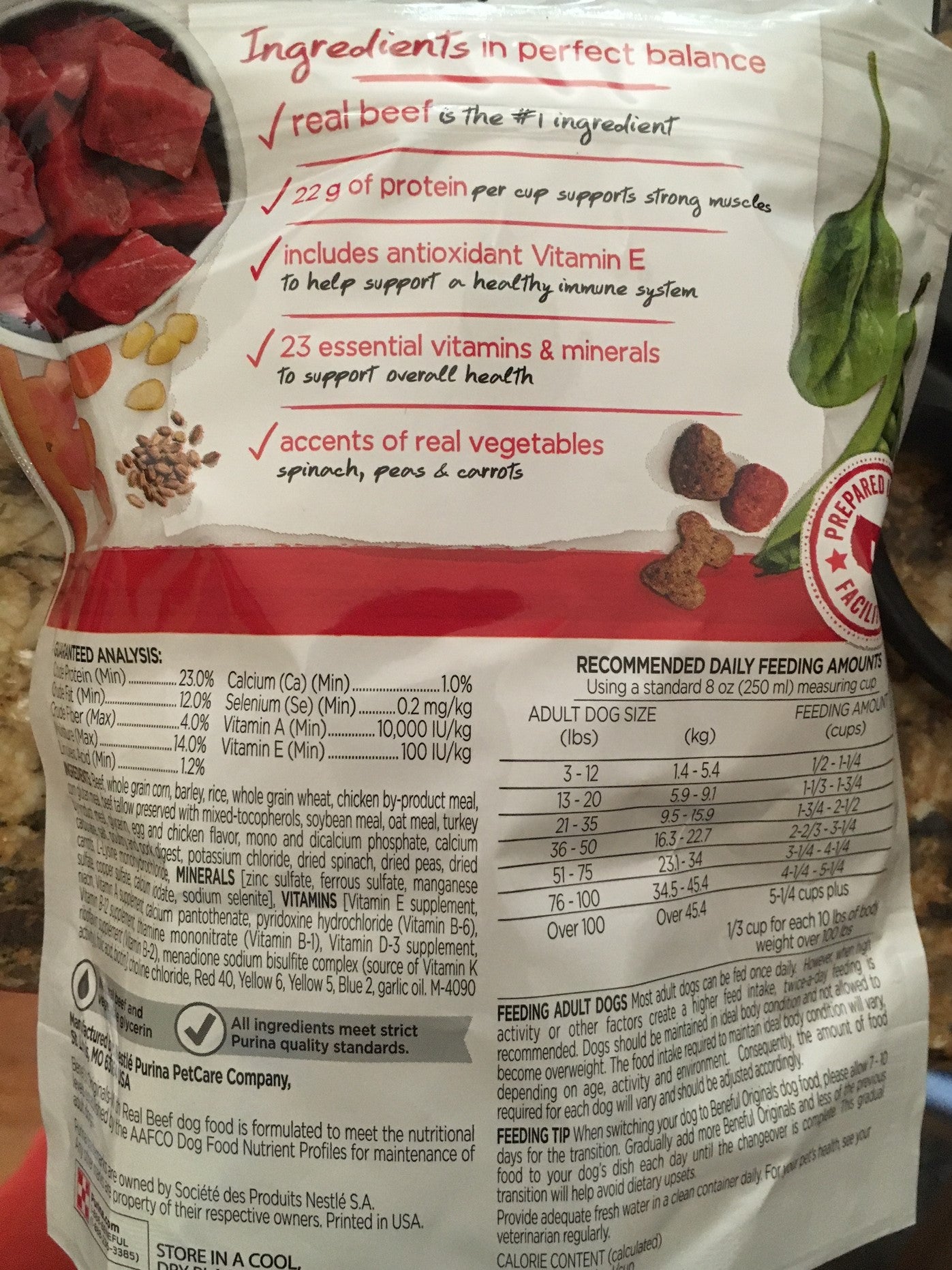Last year Pedigree (made by Mars) was the number-one-selling dog food, bringing in $1.6 billion, with Blue Buffalo and Purina's Beneful coming in second and third, with combined sales of $2.3 billion in a $30 billion industry.
Blue Buffalo was founded in 2002, rapidly gaining a rather large share of the pet food market, prompting Purina to sue them for false advertising, proving the Blue Buffalo food contained by-products, even though they advertised as using no by-products in their pet foods. While it is laudable that Purina came to the rescue for pet owners, they were really just pushing back against a competitor.
Pet food companies listen to and watch discussions by pet owners and consumers on social media. Once grains became vilified after the 2007 recalls of foods contaminated with melamine in rice protein and wheat gluten, the pet food manufacturers grabbed onto "grain-free" marketing, convincing pet owners that grain-free is better (and worth the increased price). Unfortunately, this is really just another marketing ploy. Grain-free is not necessarily better; it's just a different way to provide carbohydrates in kibble pet food.
In more recent years, manufacturers have migrated toward "ancient grains", promoting quinoa, spelt, millet, amaranth, and buckwheat as "healthy grains". Once again, pet owners are being fooled by advertising, resulting in higher spending on products that are essentially no different than those available ten years ago.
Pet owners are looking to feed their pets the best products they can afford. Spending on pet food has increased significantly, mostly due to advertising. When Beneful is advertised as "accented with blueberries, pumpkin, and spinach", pet owners believe they are buying a food rich in antioxidants and beautiful, bright colored fruits and vegetables. In reality, these are the ingredients:
Chicken, pea starch, cassava root flour, chicken by-product meal, soybean germ meal, soybean meal, canola meal, beef tallow preserved with mixed-tocopherols, dried beet pulp, poultry and pork digest, mono and dicalcium phosphate, soybean oil, salt, calcium carbonate, potassium chloride, blueberries, dried pumpkin, dried spinach, minerals, and vitamins.
NOTICE THE "ACCENTS" FALL BELOW SALT IN THE INGREDIENT LIST! How many blueberries and how much pumpkin and spinach are in the bag? Virtually negligible.
Blue Buffalo has increased their sales year after year, mostly in relation to their $50 million advertising campaigns comparing pet dogs to wolves. They would like you to believe their products are mostly meat, but read carefully:
Deboned Chicken, Chicken Meal (source of Glucosamine), Peas, Pea Protein, Tapioca Starch, Menhaden Fish Meal (source of Omega 3 Fatty Acids), Dried Tomato Pomace, Chicken Fat (preserved with Mixed Tocopherols), Flaxseed (source of Omega 6 Fatty Acids), Pea Starch, Natural Flavor, Dried Egg, Dehydrated Alfalfa Meal, DL-Methionine, Dried Chicory Root, Potatoes, Pea Fiber, Calcium Carbonate, Choline Chloride, Caramel Color, Salt, Potassium Chloride, Sweet Potatoes, Carrots, preserved with Mixed Tocopherols, Zinc Amino Acid Chelate, Zinc Sulfate, Ferrous Sulfate, Vitamin E Supplement, Iron Amino Acid Chelate, Blueberries, Cranberries, Barley Grass, Parsley, Yucca Schidigera Extract, Dried Kelp, Turmeric, Nicotinic Acid (Vitamin B3), Calcium Pantothenate (Vitamin B5), L-Ascorbyl-2-Polyphosphate (source of Vitamin C), L-Carnitine, L-Lysine, Copper Sulfate, Biotin (Vitamin B7), Vitamin A Supplement, Copper Amino Acid Chelate, Oil of Rosemary, Manganese Sulfate, Taurine, Manganese Amino Acid Chelate, Thiamine Mononitrate (Vitamin B1), Riboflavin (Vitamin B2), Vitamin D3 Supplement, Vitamin B12 Supplement, Pyridoxine Hydrochloride (Vitamin B6), Calcium Iodate, Dried Yeast, Dried Enterococcus faecium fermentation product, Dried Lactobacillus acidophilus fermentation product, Dried Aspergillus niger fermentation extract, Dried Trichoderma longibrachiatum fermentation extract, Dried Bacillus subtilis fermentation extract, Folic Acid (Vitamin B9), Sodium Selenite.
Ingredients in red are carbohydrates, making up a large portion of the food. Peas are listed four ways: peas, pea protein, pea starch, and pea fiber. That's A LOT of peas.
Sweet potatoes, carrots, blueberries, cranberries, barley grass, and parsley all fall below salt.
That long list of vitamins and minerals? Those are synthetic additives, most likely originating from China.
Don't fall for advertising gimmicks. Do your research; feed your pets the best you can afford. Better yet, make your own food with whole food ingredients you can trust.

